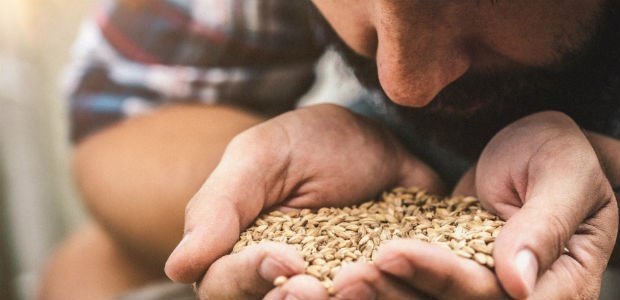If you ask most people what they learnt during Lockdown 2020, they will probably reply with something like, “Always buy extra flour and yeast, homebrewing takes practice, and sanitise regularly”. Yes, for all the downsides to quarantine, there have been a few industrious silver linings. Interest in bread-baking has Google’s servers sweating ones and zeros, and homebrew clubs like the SouthYeaster has experienced more sign-ups, likes and follows than ever before.
It would be easy to put this boom down to lockdown boredom – but, in truth, bread and beer have been inseparable since forever. Their bond is engrained in our DNA and without them, humanity as we know it would not exist. The pair is a classic example of the chicken and egg scenario and to this day, there is still debate as to which one came first. To learn more, we need to travel back roughly ten to fourteen thousand years ago.
ALSO READ: Women were the first to ever brew beer – here’s why
It was around this time that humans made the jump from a hunter-gatherer society to the beginnings of an agricultural one. We had figured out that wild grains could be mashed with water and eaten as gruel. They could also be baked into a flatbread or left to ferment with wild yeasts into the earliest form of beer. This trifecta, whichever order they appeared in, was enough to convince us to settle down and sow crops.
Barley was the king of grains back in the day and most bread was made from it. The problem with barley is that it has very little gluten, so the bread was probably dense and heavy, similar to rye bread. Nevertheless, barley bread was nutritious and long-lasting, and stockpiling food enabled villages to grow into cities. Eventually, as techniques improved, wheat replaced barley due to its gluten content making it better for baking. Gluten is the protein in bread that creates a mesh during fermentation. That mesh traps gas to produce the light, leavened bread that we eat today.
Barley was also used – and is still used today – as the main grain in beer brewing. Ancient Sumerians were long credited with the invention of beer around ten thousand years ago, but new research suggests that the Natufians might have been brewing beer around fourteen thousand years ago. As cultures developed, so did techniques. The ancient Egyptians used to crumble bread into warm water to form a mash. The enzymes would convert the starches to sugars, creating a wort that would then be fermented – much like today’s brewing process. As time went, on the Egyptians refined their process. This included germinating barley and drying it, much like maltsters do today. Ancient beers were sipped out of clay pots using long straws to avoid drinking the floaty bits.
Beer is essentially liquid bread – and, quite frankly, who cares which came first? Let’s all take a page from the ancient Egyptians’ book after the lockdown has ended. Instead of saying hello to friends back in the day, the common greeting was “Bread and beer!” The phrase encapsulated all the good things in life and was used to wish each other prosperity.
Bread and beer!
ALSO READ: 6 books to boost your brew-IQ during quarantine

